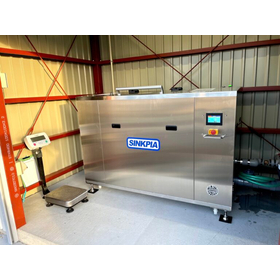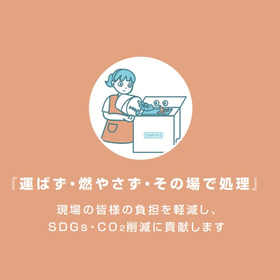[Installation Example] Minami Yutaka Nursery School, Shinagawa Ward
It can reduce energy consumption and carbon dioxide emissions associated with waste transportation, contributing to measures against global warming!
We have installed the food waste processor "GJ-30" at Minami Yutaka Nursery School (Shinagawa Ward, Tokyo). This is a step towards reducing the environmental impact of the nursery's operations and aiming for efficient and sustainable management. The benefits of introducing a food waste processor are numerous and are expected to positively influence various aspects of the nursery's operations. [Case Overview (Excerpt)] ■ Consideration for the environment and sustainable management ■ Cost reduction ■ Improvement in hygiene ■ Increased work efficiency for childcare workers ■ Provision of educational value *For more details, please download the PDF or feel free to contact us.
basic information
For more details, please download the PDF or feel free to contact us.
Price range
Delivery Time
Applications/Examples of results
For more details, please download the PDF or feel free to contact us.
catalog(4)
Download All CatalogsRecommended products
Distributors
"What we want you to discard is the conventional wisdom of food waste disposal machines." The development concept of Sink Pia is to process food waste 'without transporting, without burning, and on-site.' By self-processing food waste within facilities, it contributes to CO2 reduction and the SDGs. Japan's food waste disposal, which has relied heavily on incineration, is at a turning point, and many companies are entering the food waste processing machine industry to meet the needs of the times. However, it is also an industry where many companies have been forced to withdraw due to issues related to research and development costs, as well as a lack of knowledge, experience, and skills. Some have already started demonstration experiments, focusing on the development of microbial houses using biodegradable materials, the development of devices for processing dirty biodegradable containers, and further research on resource recovery such as liquid fertilizers and soil conditioners from decomposed water. We aim to be a company that is needed by more customers and can realize a society that is friendly to the future of the Earth's environment.
























































